
Bishop Alan McGuckian has called for the release of Hong Kong pro-democracy activist, former media owner and Catholic Jimmy Lai, who has been imprisoned for nearly three years.
The bishop of Raphoe signed a petition, along with nine other bishops from eight countries.
Mr Lai was arrested in August 2020 under a controversial law imposed by Beijing to quash what the Chinese Communist Party considered subversion and sedition in region of Hong Kong.
In September, he marked his 1,000th day in prison awaiting trial on further charges.
The prelates wrote that “Mr Lai’s persecution for supporting pro-democracy causes through his newspaper and in other forums has gone on long enough”.
“There is no place for such cruelty and oppression in a territory that claims to uphold the rule of law and respect the right to freedom of expression,” they said.
The Hong Kong government rejected the petition, calling it “misleading and slanderous”, and said it “interferes” with juridical proceedings in Hong Kong.
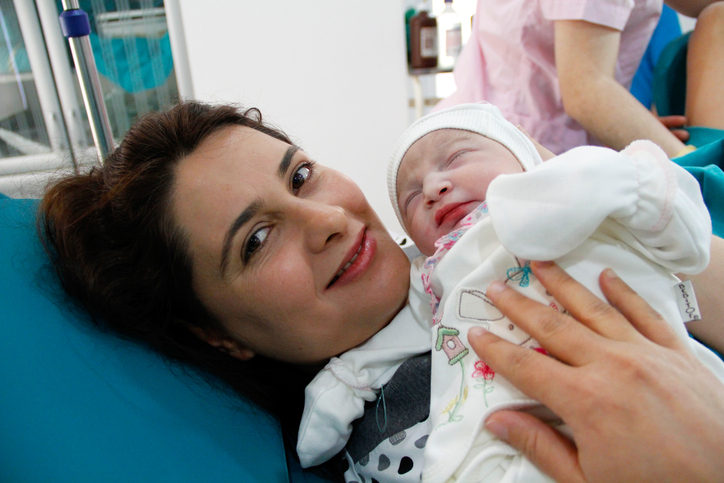
Annual baptisms in the Church of England have plummeted from 615,000 in 1920 to 80,000 last year, according to newly published figures.
The scale of the decline is illustrated further by the percentage of babies that are christened. In 1927, it baptised 72 per cent of all newborn children whereas in 2019 the Church baptised just 8 per cent.
The numbers seeking baptism were interrupted by the Covid-19 pandemic, dropping to a record low of 17k in 2020, before recovering to 80k in 2022.
The latter figure includes a higher percentage of older babies, indicating candidates who were ‘delayed’ by the pandemic restrictions.
However, despite the “significant bounce-back in baptism numbers” last year, the total figures for 2022 remained below pre-pandemic levels and the church said there are still “in the region of 70,000 people not yet baptised who would have been baptised had there not been a pandemic”.

Nonetheless, despite the overwhelming opposition, the taxpayer-funded Human Fertilisation and Embryology Authority (HFEA) has ignored the results of its own consultation and proceeded to lobby the Government for the change.
As part of the consultation, the HFEA (page 26) outlined its desire to “future proof” the Human, Fertilisation and Embryology Act to allow it be more easily modified to permit changes, such as increasing or removing the 14-day limit, via secondary legislation rather than changes to primary legislation.
Changes via secondary legislation would be subject to reduced scrutiny would be reduced, in contrast to primary legislation, where ethical considerations can be rigorously discussed in Parliament and MPs held accountable.

The consequences for the small Christian community in Gaza of the current war in the Holy Land, have been terrible, according to the Catholic charity Aid to the Church in Need (ACN).
A project partner which is responsible for the Gaza Strip said at least 53 Christian families’ houses have been completely destroyed, and most of the buildings belonging to Christian institutions have been damaged by airstrikes.
Particularly disheartening, it says, was the loss of the Catholic school of the Holy Rosary Sisters. This institution symbolised the Christian presence in Gaza and the Latin Catholic Church’s work in education.
The school is located in the Tal Al Hawa neighbourhood, one of the three areas of Gaza where most of the Christian population lives and which has been badly affected by airstrikes over the past two weeks.
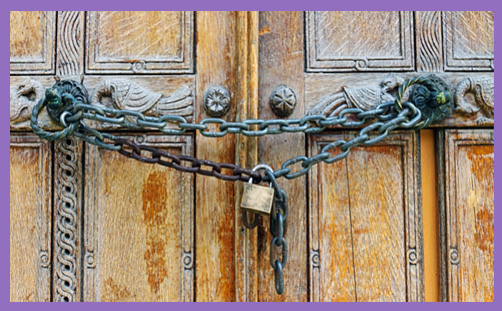
The lockdown of churches in the UK during the 2020 coronavirus pandemic was “outrageous”, a former Government minister has admitted.
Lord Greenhalgh of Fulham, a Conservative peer in Boris Johnson’s Government, said that churches and other places of worship were closed because “people at the heart of power did not understand faith”.
He made his remarks as the Covid Inquiry heard evidence from senior advisers and civil servants about the decisions taken during the pandemic.
They included Deputy Cabinet Secretary Helen MacNamara who told the inquiry that decision makers had suffered from a “narrow perspective”.
Lord Greenhalgh said that places of worship did a “phenomenal job” at controlling the spread of the virus compared to rates of transmission in other settings that were not subject to the same restrictions.
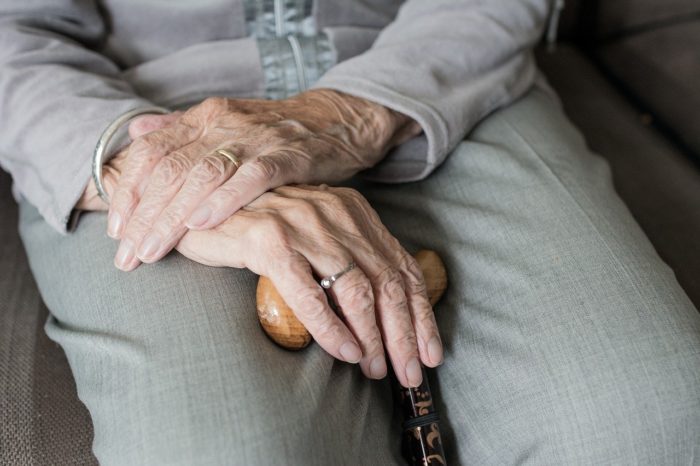
Preventing vulnerable people from being unjustly targeted for ‘assisted suicide’ is a real difficulty, numerous contributors told a joint Oireachtas committee.
On Tuesday, the National Suicide Research foundation said: “It is difficult to identify what safeguards would be deemed sufficient based on the international experience and where responsibility lies in determining adherence to safeguards”.
It added that those who choose ‘assisted dying’ have some things in common with persons who commit suicide including, “living alone, having no children, and not identifying as being religious”.
“It is likely that the prevalence of mental health conditions such as depression are under-reported and undiagnosed in people who request assisted dying.”
Speaking at the same meeting, Léopold Vanbellingen, a doctor in Law at the University of Leuven and expert on assisted death laws said despite their alleged safeguards, “each of these national laws rapidly tend to pose a threat to the lives of vulnerable people”.
“We can identify at least three categories of victims of this inescapable threat: firstly, elderly people who are dependent; secondly, people suffering from mental illness; thirdly, healthcare practitioners.”
Representing the Irish College of Psychiatrists, Dr Siobhan MacHale, said the answer to patients not receiving adequate specialist palliative care is not to “end our patients’ lives”.
She added that “by creating one class of people for whom life is expendable, that particular view may be extended by society to all groups possessing such attributes [such as permanently disabled people].”
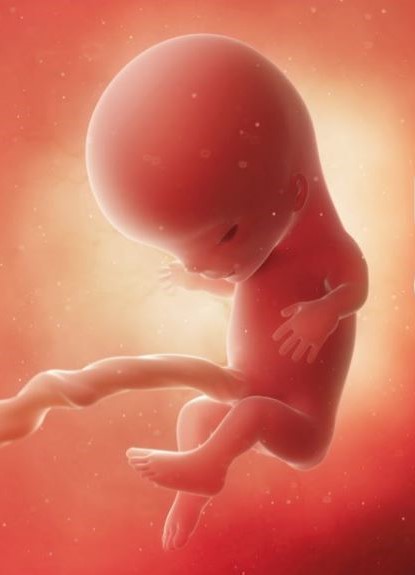
By a vote of 72-26 with six abstentions, Peru’s Congress has passed a bill that expressly recognises the rights granted in its constitution to unborn children.
Congressman Alejandro Muñante, one of the spokespersons for the Life and Family caucus in Peru, said that the fundamental purpose of the law was “to consolidate the right to life from conception, which is already established in our constitution and in the Civil Code and the Children and Adolescents Code.”
The lawmaker explained that for the drafting of this law, “the need was seen to be able to develop and detail a list of rights that our constitution precisely seeks to protect from conception.” According to Article 2 of the country’s Magna Carta, in Peru “the conceived child is a subject of law in everything that favors him or her.”

The House of Delegates of the American Medical Association (AMA) has rebuffed an effort to change the organisation’s opposition to physician-assisted suicide, a development that drew praise from members of the Catholic Medical Association, which advocated against the change.
A resolution supporting physician-assisted suicide was proposed at an AMA House of Delegates meeting that took place Nov. 10–14 in National Harbor, Maryland. The resolution would have changed the organisation’s stance on the practice from opposed to neutral. Ultimately, delegates voted down the proposal.
The AMA’s current code of ethics states: “Physician-assisted suicide is fundamentally incompatible with the physician’s role as healer, would be difficult or impossible to control, and would pose serious societal risks. Instead of engaging in assisted suicide, physicians must aggressively respond to the needs of patients at the end of life”.
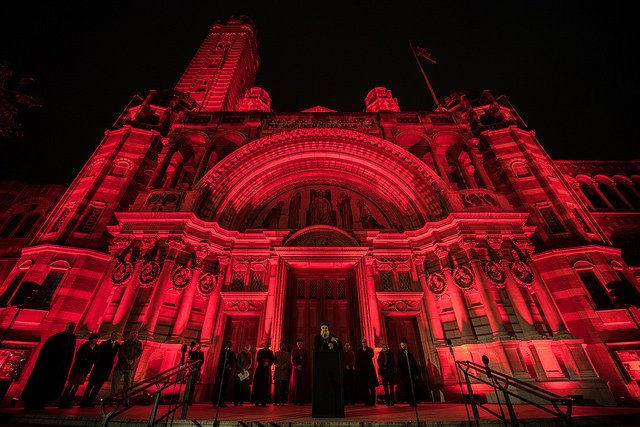
The Irish Bishops are urging parishes to light up cathedrals and churches in red to mark the upcoming ‘Red Wednesday’ that highlights the persecution of Christians worldwide.
Wednesday, 22 November, has been set aside by the Pontifical charity, Aid to the Church in Need (ACN), as a day of prayer and remembrance for Christians suffering for their faith.
The Irish Bishops recently said, “The continuing persecution of Christians in so many parts of the world is a reason for Irish people to take steps to show solidarity with them through prayer, the sharing of information, and to advocate for them with politicians and the wider community.”
ACN is a Catholic charity established in 1947 to help serve suffering and persecuted Christians around the world who are in material need as a result of discrimination and oppression. One of the initiatives of ACN Ireland is ‘Red Wednesday’, which this year falls on 22 November. Red Wednesday occurs in the middle of a week of witness and prayer for persecuted Christians across the world, including prayer vigils on the day itself.
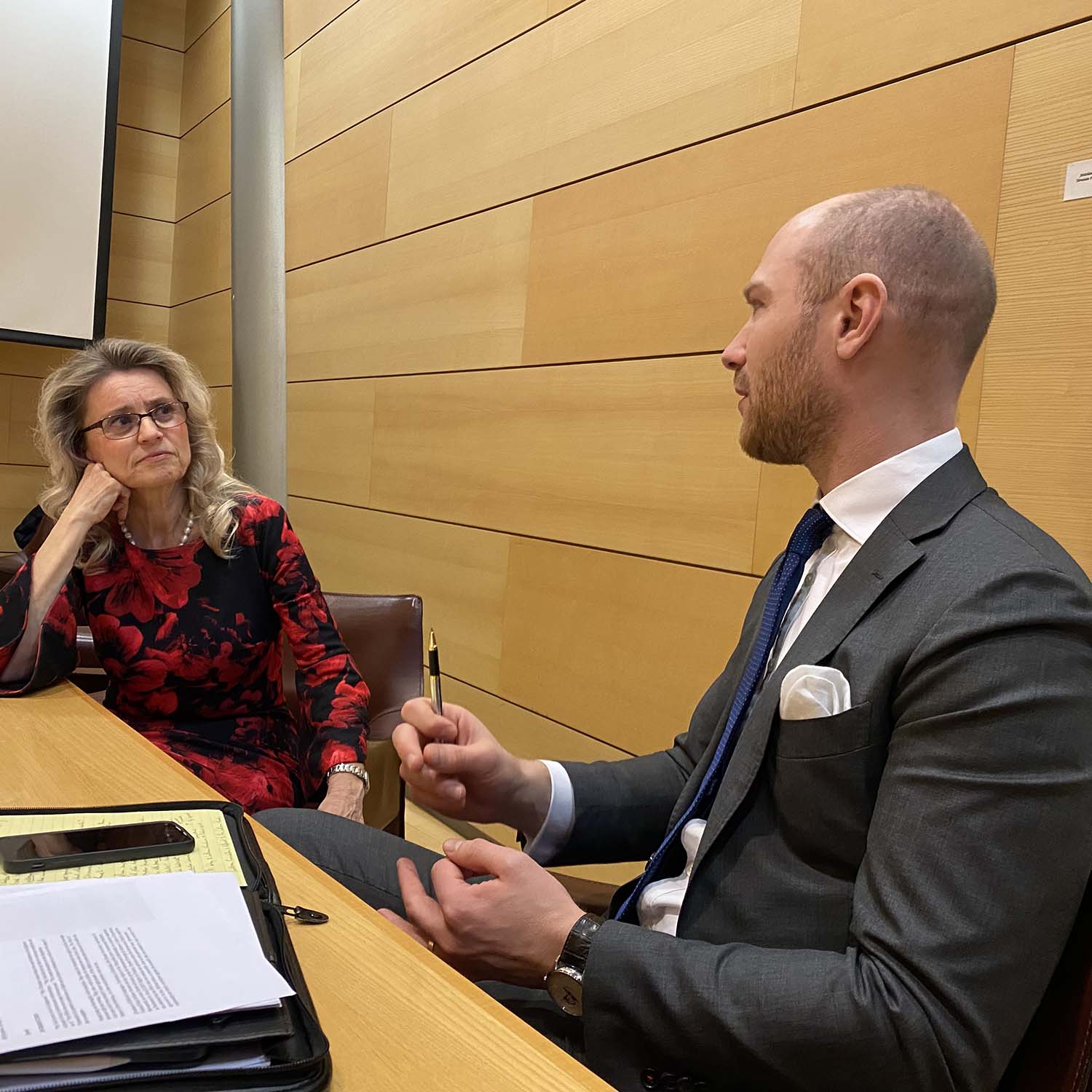
All charges against two Finnish people for having publicly expressed their Christian beliefs have been dismissed by the Helsinki Court of Appeal.
Member of Parliament Päivi Räsänen and Lutheran Bishop Juhana Pohjola had both been tried for “hate speech” in August and acquitted, but state prosecutors appealed that judgement.
Räsänen, Finland’s former Interior Minister, was formally charged with “agitation against a minority group” in 2021 under a section of the Finnish criminal code titled “war crimes and crimes against humanity” for sharing her Christian beliefs on marriage and sexual ethics in a 2019 tweet, as well as a 2019 live radio debate and 2004 church pamphlet. Bishop Pohjola was charged for publishing Räsänen’s 2004 pamphlet. The case has garnered global media attention as human rights experts voiced concern over the threat posed to free speech.
In the 2019 tweet, to coincide with a ‘Pride’ march in which her Lutheran Church took part, she said ‘How does the doctrinal foundation of the Church fit in with shame and sin being raised as a matter of pride?’
Reacting to the court ruling, she said: “I am deeply relieved. The court has fully endorsed and upheld the decision of the district court, which recognized everyone’s right to free speech.”
In a unanimous ruling that upheld the District Court’s March 2022 unanimous acquittal, the court dismissed the arguments of the state prosecutor.
The Court has ordered the prosecution to pay tens of thousands in legal fees to cover costs incurred by both defendants.